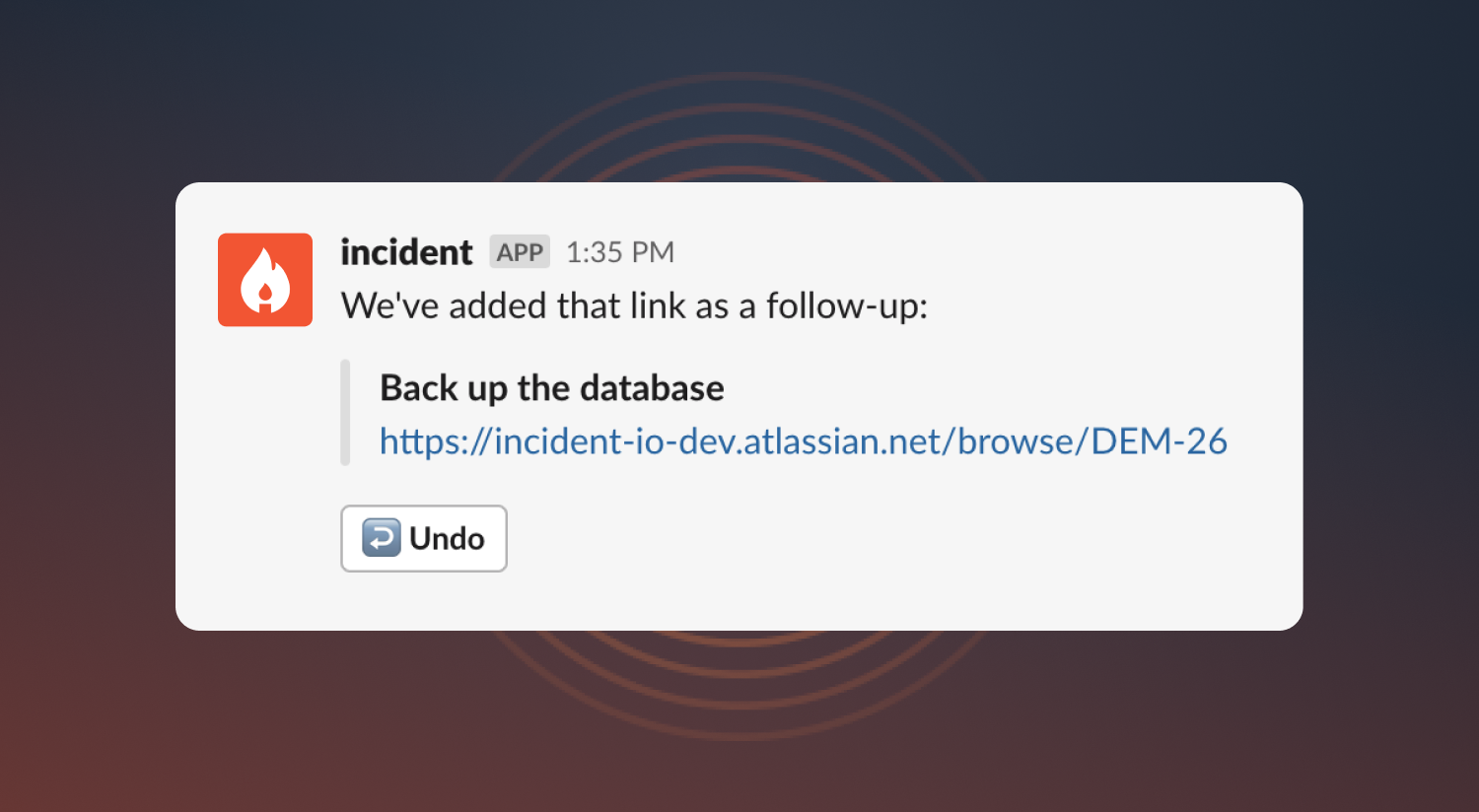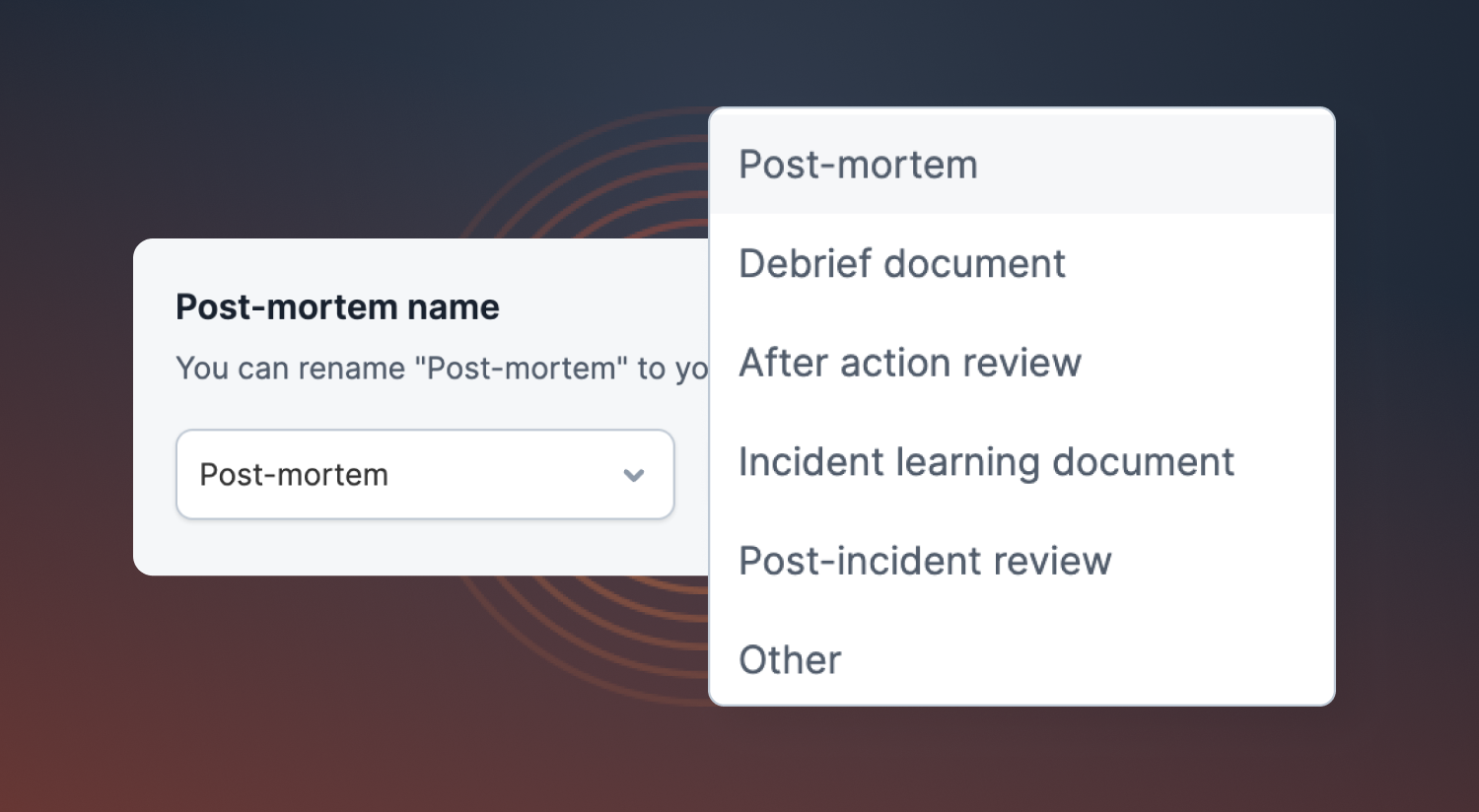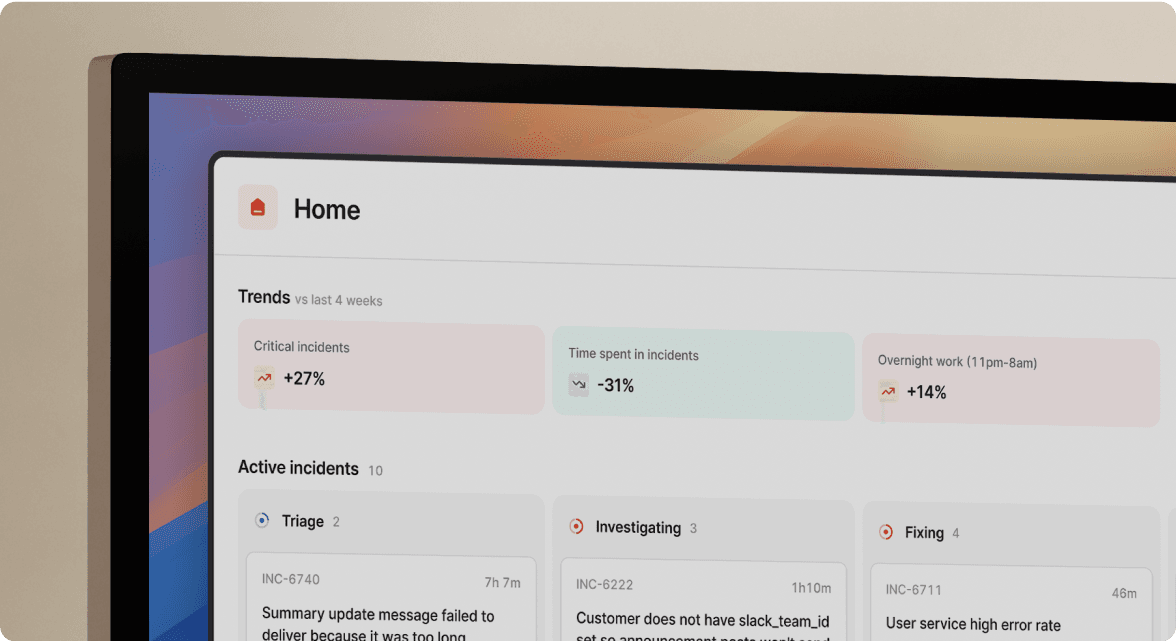Follow-up descriptions
February 14, 2023

Incident follow-ups keep track of the things you need to do once an incident has been closed, and often require more detail. You can now add a description to your follow-ups, as well as a title. This keeps your list easy to read, while making sure that others don't miss out on the context they need.
These descriptions also get included when you export follow-ups to any of our integrations, giving you all the information right where you need it. Descriptions support Markdown and line breaks, making it easy to structure your description, and add links.
Link existing follow-ups

Sometimes, follow-ups for an incident are created in different places, such as Linear, GitHub or Jira. If you've got one of our issue tracking integrations installed, we'll listen out for links to issues. When we see one posted in your incident channel, we'll automatically fetch the issue and add it as a follow-up.
Once it's been linked, we'll also listen for updates. This means that changes to titles and statuses flow through automatically, just like they would for follow-ups that start life within incident.io.
Post-mortem renaming

Communication is important when you're managing incidents, and having a shared vocabulary can minimise the chance for misunderstanding. Writing a post-mortem is critical, but we also know that not everyone calls these post-mortems.
Our settings page now lets you decide how post-mortems are labelled within incident.io. We've picked a few common options for these documents, but you can also specify your own.
What else we shipped
Bug fixes
- CMD+K now works smoothly on Windows
- We fixed the way we detect Asana URLs: some were slipping through the net
- Clicking through to an incident from a policy violation takes you to the right place
- Severities with commas now behave correctly when you export them to Notion
Improvements
- We sped up the way that we render the timeline
- We used to refer to both "open" and "outstanding" follow-ups: we now use "open" everywhere
So good, you’ll break things on purpose
Ready for modern incident management? Book a call with one of our experts today.

We’d love to talk to you about
- All-in-one incident management
- Our unmatched speed of deployment
- Why we’re loved by users and easily adopted
- How we work for the whole organization



